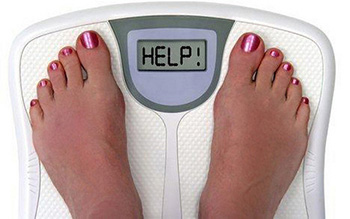HCG (Human Chorionic Ganadotropin) has many uses but it widely known for its diet and weight loss potential, as well as a fertility drug for women.
HCG and Pregnancy
 (1). Early Pregnancy – Urine tests are used for measuring HCG numbers early on during pregnancy. That means the HPT results will either be Positive or Negative while the blood HCG numbers lay out a specific number as mIU/ml.
(1). Early Pregnancy – Urine tests are used for measuring HCG numbers early on during pregnancy. That means the HPT results will either be Positive or Negative while the blood HCG numbers lay out a specific number as mIU/ml.
The only time HCG is produced by placenta is during pregnancy. This is the hormone that the home pregnancy tests are looking for along with the blood tests taken by doctors. HCG is produced whenever the fertilized egg naturally implants into the uterus.
HCG numbers of more than 25 mIU/ml are considered ‘pregnant’. However, the miscarriage rate at this point is still quite high at over 30%.
HCG Count When Pregnant
(2). During Pregnancy – A blood test can detect HCG in about three to four days after ovulation or fertilization, and in around the same amount of time after implantation. The goal of having a normal HCG count is in maintaining the corpus luteum. That’s what produces the progesterone during early pregnancy. The progesterone assists with keeping the lining of the woman’s uterus thick so she experiencing a healthy pregnancy.
Without enough HCG being present, then the lining of the woman’s uterus begins to deteriorate, preventing implantation the continuance of the pregnancy.
There’s a broad range of HCG levels considered to be a normal count in determining pregnancy. With most of the pregnancies that develop normally the HCG count and HCG levels double every 2 to 3 days during early pregnancy, then change to doubling every 3 to 4 days.
When the HCG count is low it can means a miscalculated conception date, possible miscarriage, or an ectopic pregnancy. The problem is, even a very healthy pregnancy can have low HCG levels and counts.
High HCG counts can be in indication of a miscalculated conception date as well, or be a sign of a molar pregnancy or multiple pregnancy.
Things That May Interfere With HCG Levels and Counts
There are certain fertility drugs (mainly HCG injections) that contain HCG. These can affect a woman’s HCG levels. Aside from those, other medications that include oral contraceptives and antibiotics do not affect HCG levels.
Frequent Urination
An increase in the blood flow going to your pelvic region, caused from taking pregnancy hormones, can also cause more frequent urination. Another reason can be increased fluid retention. While the pregnancy is moving into the 3rd trimester, a baby’s weight will press on the bladder, leaving a woman feeling like she has to urinate more frequently.
All frequent urination means is that your body is flushing out fluids from the body a bit quicker. This can lead to dehydration if a woman doesn’t drink enough fluids. Dehydration during the later stages of pregnancy can cause premature labor with contractions. That makes it extremely important to always drink plenty of fluids, preferably caffeine-free, all throughout your pregnancy.
The only way to stop frequent urination is to have the baby. However, even after having the baby the body will still be flushing out fluids faster than normal.
HCG and Twins
The HCG counts and levels alone cannot diagnose twin pregnancies. Science has no sufficient evidence to suggest that any faster-than-normal rises in HCG means twins are on the way. Normal HCG values will fluctuate and vary as many as twenty times during a normal pregnancy. Variations in the increase of HCG does not necessarily mean the pregnancy is abnormal, neither does it mean there are 2 or more fetuses.










